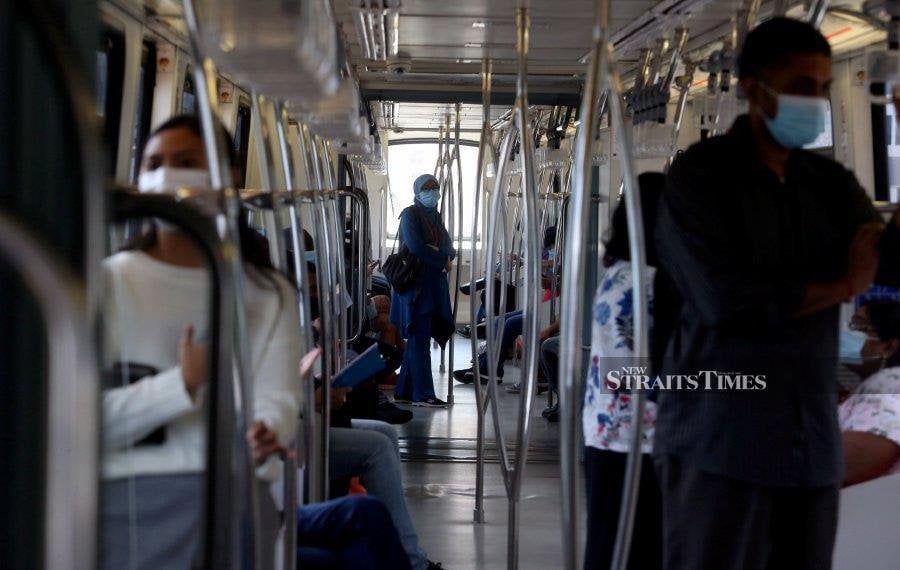
KUALA LUMPUR: With face masks now a legal requirement in public areas, local authorities should be made to provide special bins for the public to ensure proper disposal of single-use face masks.
Alliance for Safety Community chairman Tan Sri Lee Lam Thye said this was crucial as improper disposal of face masks has led to a new environmental challenge whereby it has become a source of pollution on land and at sea.
He also called on the Environment Ministry to provide clear-cut guidelines detailing the dos and don'ts for proper disposal of all face masks.
The threats of disposing face masks improperly, he said, include the risk of spreading the virus to the public especially waste collectors or anyone who comes into contact with the litter.
"Studies show that the virus is able to survive on masks for a period of seven days. It is therefore extremely crucial for face masks to be disposed of correctly.
"We realise that improperly disposed face masks not only cause threats to people but also to animals and plants as well.
"Animals will not be able to differentiate between plastic and food and hence tend to choke or worse still, will be malnourished as these pieces of litter will bloat their stomach.
"Certain small animals get entangled in the elastic bands of the masks as these masks begin to disintegrate," he said in a statement today.
Lee noted that plastics would decompose into very small-sized nanoparticles over time, accumulating in the food chain.
Hence, he said the threat of these particles to carry chemicals and bacteria up the food chain was evident, which would eventually reach humans.
He said waste experts estimated that at least 10 million single-use face masks are used and discarded daily in the country.
These masks, he said, could not be recycled because they may be contaminated and could potentially lead to indirect infections if they enter the recycling system.
"Many used masks end up on our roads and drains leading to rivers and eventually make their way to the sea. This is a matter of serious concern arising from the irresponsible behaviour of people who discard their used masks everywhere.
"These used masks must be discarded into special bins and should be disposed in proper places or incinerated.
"The United Nations Environment Programme has also advised against open dumping or burning of medical waste as this could cause serious health and environmental issues.
"Hence, it is best if there is are proper guidelines on how to dispose these masks to be circulated and available widely to the public."
According to the World Health Organisation, Lee said face masks should be discarded in the "correct bin" and not be mixed in the general household waste.
He said the Brazilian Sanitary and Environmental Engineering Association came up with a guideline whereby used face masks should be sealed in two plastic bags one inside another, and thrown.
"As an extra precaution, one should wash their hands before removing the mask and ensure that only the elastics are touched while removing it. Washing hands after handling one's own mask is highly advisable.
"To have a better way of disposing of these masks and other medical waste such as gloves, a centralised waste collection system could also be enforced for proper segregation at the household level.
"This has been implemented in China. Even the garbage collectors must be advised to wash their hands after handling waste.
"It is important for the public to be aware that it is indeed a shared responsibility of all to help stop the spread of the virus and also to not incur or create a new issue along the way (environmental pollution). It should start with the responsible disposal of face masks."
Lee urged government via the Environment Ministry to play an active role in spreading awareness about this issue, and to establish guidelines for disposing face masks.
These guidelines should be made publicly available, he added.
